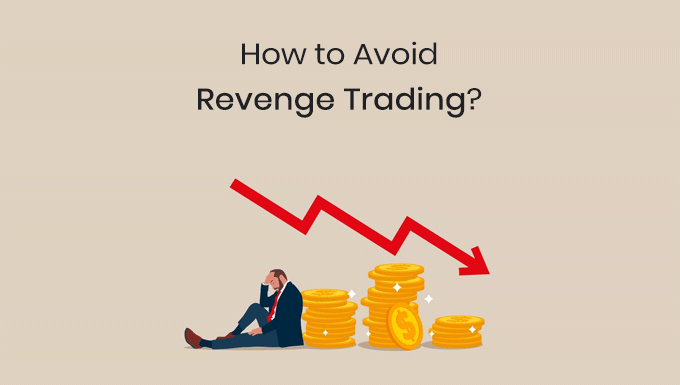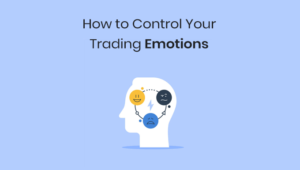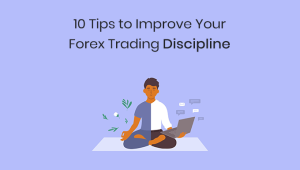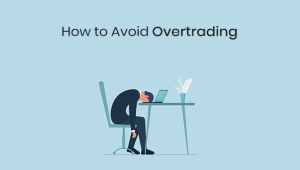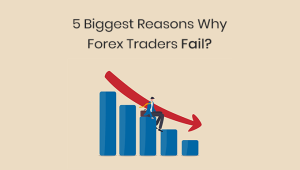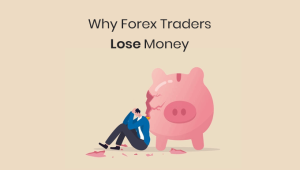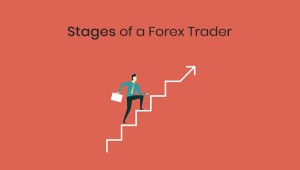Revenge trading is a dangerous habit that can easily compromise discipline and ruin your trading account in a matter of minutes. Revenge trading happens when a trader tries to “get back” at the market following a losing trade. It’s an emotionally driven response that can result in more harm than good. But how can you avoid revenge trading in forex and maintain a rational trading strategy? Let’s explore.
What Is Revenge Trading?
Revenge trading is a psychological trap where a trader, after facing a loss, impulsively takes another trade to recover the loss, usually without a logical strategy. The emotional rush compromises rational decision-making, often leading to even larger losses.
Signs of Revenge Trading
Over-leveraging
Over-leveraging is one of the most obvious signs of revenge trading. In an attempt to recover losses, traders may drastically increase their position size, using leverage to amplify potential gains. While this approach could lead to rapid profits, it also greatly increases the risk of big losses. Over-leveraging is a clear indicator that rational decision-making has been compromised by emotional turmoil, leading traders to take risks they would normally avoid.
Violating Your Trading Strategy
A well-thought-out forex trading strategy is like a roadmap that helps traders find their way through the market’s opportunities and pitfalls. When traders start deviating from this strategy—ignoring set stop-loss or take-profit levels, for example—it’s often a sign of emotional disturbance driving the decision-making process. A strategy violation isn’t just one bad decision; it’s a break in a system designed to secure capital and maximize profits. Such a violation is often motivated by a desperate attempt to “make up for” a loss, which is what revenge trade is all about.
Quick Re-Entry into the Market
Following a loss, it’s natural to feel an urge to recover as quickly as possible. But rushing back into the market without a careful analysis is a bad idea. Quick re-entry is often based on the mistaken belief that more trades mean more money, overlooking the importance of quality trades over quantity. This impulsive behavior reflects a sense of urgency that is emotionally charged, and it rarely leads to good trading decisions.
Trading in Higher Volumes Than Usual
Just like over-leveraging, trading in volumes higher than usual is a red flag for revenge trading. Traders may feel that by increasing the volume, they will have a better chance to recover losses quickly. But trading in larger volumes not only raises the possible reward but also raises the risk of more losses that could be damaging. The desire to recover quickly can cloud judgment, leading traders to risk more money than they should, putting their capital at risk.
The Psychological Aspects
Emotional Triggers
Revenge trading, an emotionally driven response to losses that is often driven by strong feelings such as anger, frustration, and the need for immediate gratification. Understanding the emotional states that can prompt revenge trading is essential. By recognizing these emotions when they arise, traders can use strategies like deep breathing, stepping away from the computer, or revisiting their trading plan, rather than making impulsive decisions that could maximize their losses.
The Role of Ego
In trading, ego can be both an asset and a liability. Self-confidence is important for making wise decisions, but an inflated ego can make it hard to see things clearly. Traders who think their self-worth depends on how well they do in the market are especially at risk. A single loss can feel like a devastating blow to their identity. This usually leads to more losses as traders rush back into the market without doing enough research to “prove” themselves.
Practical Tips to Avoid Revenge Trading
Stick to the Plan
One of the key rules in forex trading is consistency. Having a solid trading plan and sticking to it, irrespective of emotional states or market pressures, can serve as a bulwark against impulsive trading decisions. A trading plan includes pre-defined entry and exit strategies, risk management tactics, and financial goals.
Set Stop-Loss and Take-Profit Levels
Tools like stop loss orders can automatically close your position once a certain loss level is reached, while take-profit orders can lock in profits when a set price level is hit. By automating your exit strategies, you reduce the room for emotional errors, allowing the trading plan to take the reins during volatile periods.
Take a Break
When a trade goes awry, the immediate response should not be to jump back in to recover losses. Instead, take a step back to evaluate the situation. This pause allows for a period of reflection to analyze what went wrong and to revisit the trading plan for future improvements.
Review and Learn
The best traders are also perpetual students of the market. Continually reviewing both profitable and unprofitable trades enables a process of self-improvement and fine-tuning of strategies. Understanding the reasons behind both successful and unsuccessful trades can offer invaluable insights into the market and your own trading behavior.
Community Support and Professional Help
Forums and Online Groups
Online trading communities such as Forex Factory forum offer a platform for traders to exchange experiences, strategies, and coping best practices. These groups can be a valuable resource, offering peer reviews and advice that can help refine your trading approach.
Consult a Mentor
Having a seasoned mentor can make a world of difference. They can provide expert, impartial advice, help you analyze your trades, and offer emotional support during hard times.
Psychological Coaching
An increasing number of traders are seeking the help of psychologists specialized in trading psychology. These professionals can help traders develop emotional resilience and discipline, crucial traits for long-term success in trading.
The Importance of a Balanced Lifestyle
Exercise and Meditation
Physical well-being can influence your trading performance. Exercise and meditation can help clear your mind and improve decision-making.
Work-Life Balance
Don’t let trading consume your life. A well-rounded lifestyle can contribute to better trading performance.
Conclusion
Revenge trading in forex is a surefire way to compound your losses and make emotionally driven decisions. It’s vital to recognize the signs and emotional triggers that lead to revenge trading. Stick to your trading plan, utilize trading tools, and never hesitate to seek community support or professional advice. With discipline and emotional intelligence, you can navigate the forex market more wisely and avoid the pitfalls of revenge trading.
FAQs
Q: What is revenge trading?
A: Revenge trading is an emotionally driven behavior where a trader tries to recover losses by making impulsive trades, often leading to bigger losses.
Q: How can I recognize if I’m revenge trading?
A: If you find yourself deviating from your trading plan, trading in higher volumes, or ignoring stop-loss levels, you might be engaged in revenge trading.
Q: Are professional traders immune to revenge trading?
A: No, revenge trading can affect traders of all levels. The key is emotional discipline and strict adherence to a well-defined trading strategy.
Q: Can a balanced lifestyle contribute to better trading performance?
A: Absolutely, a well-rounded lifestyle that includes exercise, sufficient sleep, and work-life balance can help you make better trading decisions.
Q: Is it helpful to take breaks between trades?
A: Yes, taking breaks can help clear your mind and allow you to approach trading with renewed focus and objectivity.
